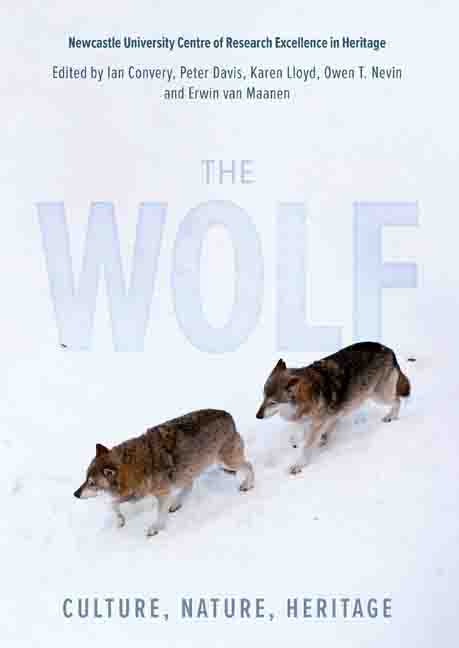Book contents
- Frontmatter
- Dedication
- Contents
- List of Illustrations
- Preface and Acknowledgments
- List of Abbreviations
- Poem: Trophic Cascade by Camille T Dungy
- Foreword
- Part I Imagining the Wolf
- Part II What Makes the Wolf
- Part III Return of the Wolf
- Part IV Personal Encounters
- Afterword: The Ecological Disadvantage of Living on an Island
- Glossary
- List of Contributors
- Index
28 - Speaking Out for Wolves: A Personal Reflection
Published online by Cambridge University Press: 10 January 2024
- Frontmatter
- Dedication
- Contents
- List of Illustrations
- Preface and Acknowledgments
- List of Abbreviations
- Poem: Trophic Cascade by Camille T Dungy
- Foreword
- Part I Imagining the Wolf
- Part II What Makes the Wolf
- Part III Return of the Wolf
- Part IV Personal Encounters
- Afterword: The Ecological Disadvantage of Living on an Island
- Glossary
- List of Contributors
- Index
Summary
TALE 1: APRIL 2017 – UK – HAUNTED BY THE SOUNDS OF SILENCE
‘So, you survived the night then – you didn't get scared by the silence?’ The owner smiled as he asked this question. ‘No, not at all, it's been wonderful. Why do you ask?’ I replied. ‘Well, we had a couple come to stay,’ the owner continued, ‘they’d booked for the week. But after the first night, they came knocking on our door, handed the keys back and said they were leaving – city folk, thought they’d enjoy retreating into nature, but they got scared. They were all right with the wolves, it was the dark and quiet – used to noise and bright lights, too scared to leave the cottage at night, even to go to their car. We refunded their money.’ ‘That was kind of you’, my husband, Ian, responded, and I joined in, angry they’d accepted the refund, ‘Especially since the money goes to sustain the work with wolves.’ I think back to our first evening in this hidden-away Shropshire valley in the borderland of Wales and England. As in the rest of the UK, this area had been devoid of wolves for over 500 years. In 1993 the current owner purchased a piece of land here; his intention was to keep a pair of wolf pups he’d rescued from a zoo that was shutting down. The owner – let's call him John – went on to establish the Wolf Watch UK sanctuary to provide a home for ‘displaced wolves’. To date, it has provided a home for 36 displaced wolves, without which they would have been euthanised. John is discreet about the location of the sanctuary, and only when visitors book are they provided with the address.
On our first night, we’d watched the light dimming over the valley, the sunset hidden behind tall fir trees. We’d listened as wolves howled – lupine communication believed to be used to locate one another. To us listeners, it sounded like a lullaby, which was accompanied by birdsong. The moon had gradually risen, its gentle light casting a glow over treetops long before it came into view from the valley floor.
- Type
- Chapter
- Information
- The WolfCulture, Nature, Heritage, pp. 327 - 334Publisher: Boydell & BrewerPrint publication year: 2023

